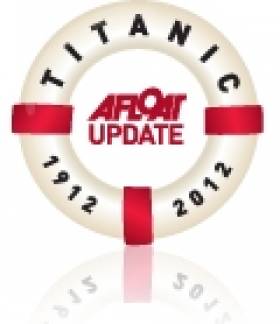Displaying items by tag: Wimbledon
#ROWING: Portora Royal School brought Ireland’s winning total to two on the first day of Henley Royal Regatta. The crew from Enniskillen got off to a good start against King’s College School from Wimbledon in the Princess Elizabeth for schoolboy eights and stretched their lead to one length. But the Wimbledon boys would not give up. They ate into the lead coming up to the line and lost by just two thirds of a length.
Trinity had earlier won in the first round of the Temple Cup for student eights.
Henley Royal Regatta, Day One (Irish interest)
Temple Cup (Eights, Student): Trinity bt Pembroke and Caius Colleges, Cambridge 3¼ l, 6min 49 seconds
Princess Elizabeth (Eights, Schoolboy): Portora Royal School bt King’s College School, Wimbledon 2/3 l, 7:04
Wyfolds (Fours, Club): Nottingham RC ‘A’ bt Lady Elizabeth BC 2½ l, 7:39
Tennis Duo's Untold Titanic Story
#TITANIC - The Irish Times has highlighted "one of the less well-known tales of the disaster" of the Titanic, regarding two tennis champions who went on to enter that sport's hall of fame.
The story of Richard Williams and Lark Behr was told at an exhibition of sporting memorabilia in Yorkshire last month by collector Robert Fuller.
Williams, who was 21 at the time, was headed to the US Championships when the Titanic went down. He was among those rescued by the Carpathia after hours in frozen water, and fought with that ship's doctor who wanted to amputate his legs.
His persistence paid off, as just months later he was in the quarter finals of the US Open, a context he would win in 1914 and 1916, not to mention the Wimbledon doubles title in 1920 and Olympic gold in the mixed doubles in 1924.
Behr - who reportedly proposed to his fiancée on a lifeboat - also had a glittering career after the tragedy, reaching the doubles final at Wimbledon and number three in the US rankings.
Meanwhile, BBC News has posted an infographic that follows in detail the critical moments leading up to and after the Titanic struck the iceberg that sealed its doom at 11.40pm on Sunday 14 April 1912.

























































